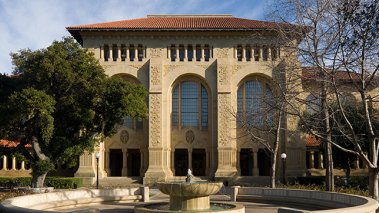Table of Contents
Stanford Student Government Steamrolls Club, Ignores Promises on Free Speech

STANFORD, Calif., June 2, 2014—In the wake of its heavily criticized, viewpoint-based retraction of funding to the Stanford Anscombe Society (SAS) student group for a conference on traditional values and marriage, Stanford University’s student government has ruled that the government’s Graduate Student Council (GSC) did not violate the group’s rights under Stanford rules. Additionally, the student government maintains that there is “simply not enough money” to fulfill requests for funding such as SAS’s request for $600—despite the fact that the student government has amassed a “Graduate buffer fund” of more than half a million dollars.
The Foundation for Individual Rights in Education (FIRE) wrote to Stanford on March 20 asking the university to honor its commitments to free speech and equality.
“Stanford students should be embarrassed and ashamed by their student government subjecting free speech to a popularity contest,” said Robert Shibley, FIRE’s Senior Vice President. “Until this injustice is reversed, Stanford students have no reason to expect that Stanford’s promises of free speech or equal treatment mean anything if they wish to express controversial views on campus.”
FIRE first drew attention to Stanford’s violations of SAS’s rights in March after students objected to the GSC’s $600 allocation to SAS. The group requested the funding to support its conference on “Communicating Values: Marriage, Family, and the Media.” At the GSC’s March 5 meeting, numerous Stanford students claimed that SAS’s conference amounted to “discrimination” and created an “unsafe space” for LGBT students on campus.
Following debate, the GSC voted to retract the $600 in funding it had previously allocated to SAS, prompting FIRE’s March 20 letter to Stanford President John Hennessy. Stanford also levied more than $5,600 in security fees on SAS, apparently in response to the conference’s controversial subject matter. While Stanford ultimately rescinded the security fee, the viewpoint-based retraction of funding by the GSC remained, leading SAS to file a grievance with the Associated Students of Stanford University’s (ASSU’s) Constitutional Council.
The Constitutional Council’s May 17 ruling (PDF) rejected SAS’s request to restore its funding, stating, “We do not find that the denial or revocation of funding constitutes a prohibition or abridgement of free speech.” The ruling supported its conclusion using bizarre rationales, such as the argument that “[t]he GSC did not pass legislation to prevent the event from taking place.” While the Constitutional Council expressed concern about the potential for viewpoint discrimination, it nonetheless declined to intervene, arguing that “there is not an explicit clause in the [ASSU] Constitution that protects against discrimination in terms of funding.” The ASSU Constitution does, however, contain an explicit provision mirroring the exact wording of the First Amendment, under which such discrimination is impermissible.
“The Constitutional Council’s opinion is a mess,” said Peter Bonilla, Director of FIRE’s Individual Rights Defense Program. “Its reasoning is nearly incomprehensible and it displays a severe lack of understanding of the principles of freedom of expression. It fails on the whole to inspire trust in Stanford’s student government as a fair arbiter of student rights.”
SAS requested (PDF) a rehearing of its appeal, challenging the GSC’s assertion that there was “simply not enough money” for the GSC to fulfill every request. SAS provided clear evidence to the contrary, pointing to a recently-passed GSC bill which notes the existence of a “Graduate buffer fund” of excess funds paid by students totalling $539,827.58 (PDF). Further, the bill noted that the buffer fund had been increasing at an average rate of nearly $50,000 per year and had increased more than $90,000 in the most recent fiscal year. Stunningly, the Constitutional Council rejected SAS’s argument, finding the GSC’s burgeoning funds to be irrelevant to its considerations.
“The fact that the GSC had already voted to fund SAS once and only reversed its decision after students objected to the group’s views, combined with the documented excess funds it has at its disposal, undermines the student government’s credibility past the breaking point,” said Bonilla. “It is past time for Stanford administrators to step in, put an end to these blunders, and give students some measure of confidence in the university’s commitment to a diversity of opinion on campus.”
FIRE is a nonprofit educational foundation that unites civil rights and civil liberties leaders, scholars, journalists, and public intellectuals from across the political and ideological spectrum on behalf of individual rights, freedom of expression, academic freedom, due process, and rights of conscience at our nation’s colleges and universities. FIRE’s efforts to preserve liberty on campuses across America can be viewed at thefire.org.
CONTACT:
Peter Bonilla, Director, Individual Rights Defense Program, FIRE: 215-717-3473; peter@thefire.org
John Hennessy, President, Stanford University: 650-725-6847; president@stanford.edu
Recent Articles
FIRE’s award-winning Newsdesk covers the free speech news you need to stay informed.

BREAKING: New Title IX regulations undermine campus free speech and due process rights


Stanford president and provost cheer free expression in open letter to incoming class
